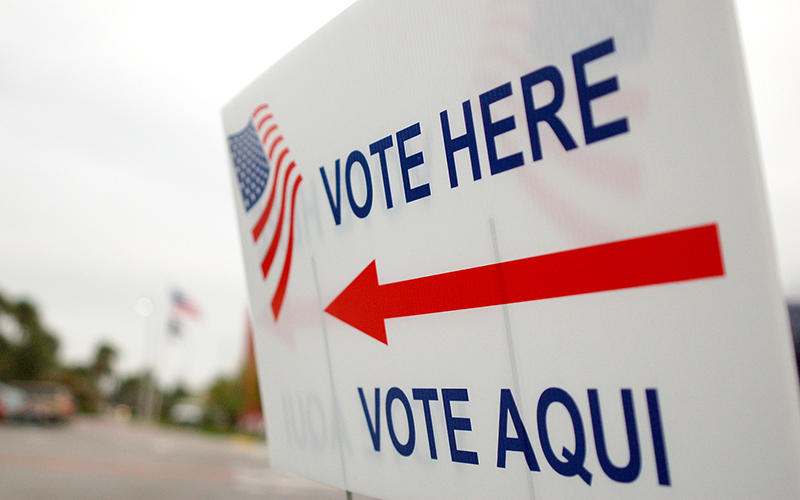
A federal court Friday affirmed Tucson’s system for electing city council members, a hybrid of ward-based primaries and at-large general elections, saying it does violate the one-person, one-vote principle. (Photo by Erik Hersman/Creative Commons)
WASHINGTON – A federal appeals court reaffirmed Tucson’s hybrid city election process Friday, rejecting opponents’ claims that it violated the one-person, one-vote principle.
The full 9th U.S. Circuit Court of Appeals said the system for city elections – in which council members are first nominated by party in ward races and then run at-large – is allowed under the federal system that “permits ‘innovation and experimentation'” that can “vary greatly across the country.”
“Tucson’s hybrid system represents a careful, longstanding choice, twice affirmed by voters, as to how best to achieve a city council with members who represent Tucson as a whole but reflect and understand all of the city’s wards,” Judge Marsha Berzon wrote in the court’s unanimous opinion.
The decision reverses a November ruling by a divided panel of the circuit court that had agreed with a lawsuit by the Public Integrity Alliance, a government watchdog group, that claimed the system violated the Equal Protection Clause of the 14th Amendment.
“It’s very disappointing, and the options from here are to either walk away or ask the Supreme Court to review it,” said Kory Langhofer, who argued the case against the city for the Public Integrity Alliance.
But Tucson City Attorney Mike Rankin said the court was right to affirm the voting system that worked for the city.
“It’s very satisfying to get a unanimous opinion of the court that upholds the voting system that the voters have chosen,” Rankin said.
The city holds elections for half of the six-member council every two years, in odd-numbered years. Elections were held last year for council members from wards 1, 2 and 4, and will be held next year for members from wards 3, 5 and 6.
Tucson has used the hybrid election system since adopting its charter in 1929. Under that system, voters elect candidates in partisan ward-level primaries, and winning candidates from both parties advance to a citywide general election.
Only ward residents can vote in the primaries for their ward, but all voters in the city can cast ballots in the general election for the three seats to be filled that year.
Attempts to change the process have twice failed at the polls, with city voters rejecting a 1991 proposal to create ward-based general elections and a 1993 attempt to make the city elections nonpartisan.
The Public Integrity Alliance filed suit claiming that the system violated the one-person, one-vote principle. It argued that city elections either be held by ward for both the primaries and the general election, or that they both be citywide elections.
A federal district judge disagreed, siding with the city. But a divided three-judge panel of the appeals court overturned that decision last year.
The city appealed the panel’s decision to the full 9th Circuit, which found Friday that the Tucson system advanced a valid city interest in electing candidates who ultimately serve both in their ward but also the city as a whole.
Berzon noted that at least two other states in the circuit, Washington and Nevada, have local elections that follow a hybrid model. And the court also found that the system applies to all voters does not overburden one group of voters over others.
“Ultimately, every voter has an equal opportunity to vote in their own ward’s primary every four years and in the general election every two years,” Berzon wrote. “As is constitutionally required, then, every voter in Tucson has the same voting power as every other voter in the primary and general city council elections.”
Langhofer said he expects to make a decision “in a week or so” about whether to take the case to the Supreme Court.